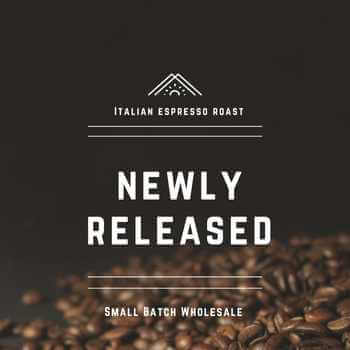Coffee Beans vs Ground Coffee
Whole bean or ground coffee can be quite the debate among coffee connoisseurs, with both sides of the story having some positives and negatives. Most people buy and use ground coffee, mainly because that is the easiest to use and the form that is found on the shelves of every local supermarket. It's ready to brew, and won't require any extra time, skills or equipment on your part. And that pretty much sums up all the positive aspects of pre-ground coffee. Ease and convenience.
People also lean towards ground coffee because they wouldn't know what to do with whole bean coffee. There are a few pitfalls to ground coffee though, so you might want to think twice about taking that route. The most important one is freshness. Once it's been roasted and ground, coffee will go stale fast. All the taste is in the bean oils, and they will evaporate once the beans are ground up. Even cans of coffee that have been vacuum-packed are going to be a lot less fresh than coffee you grind yourself. If you've never had freshly ground coffee, you may not even realize there is a difference. But if you buy whole beans, and then grind them up minutes before you brew up your pot of coffee, the flavor is much stronger and the subtle tastes of your specific type of bean are more noticeable. The second thing to consider when comparing whole bean to ground coffee is grind fineness. Depending on what brand of ground coffee you buy, you usually don't get to select how fine or coarse you want. Different brewing methods work best with different types of coarseness, so why limit yourself to only one option. If you grind it yourself, you can make up a batch of coarse coffee for your French press or some fine grinds for an espresso machine Even the simplest coffee bean grinder will give you the control over your grounds. Since you'll only be grinding small amounts right before you brew, you can change the fineness whenever you want. So, even with these issues between whole bean and ground coffee, there is still the problem of the extra effort involved in doing the grinding yourself. That would be the main downfall for whole beans. In truth, it only takes a minute or two to grind up enough beans for a pot of coffee so the effort is minimal once you get into the habit of doing it.
Cleaning out the coffee grinder can also be a bit of a chore. And the grinder itself is another downside to whole bean coffee. Not everyone wants another piece of kitchen equipment around. You can buy small and inexpensive models, or spend quite a bit more on a grinder with more controls and features. A burr grinder will produce the most even grind, but blade grinders are much cheaper. The bottom line is that between whole bean and ground coffee, the things to consider are freshness, control and convenience. Whole beans will give you a fresher cup and you can decide your own level of coarseness, but ground coffee is ready without any work.









